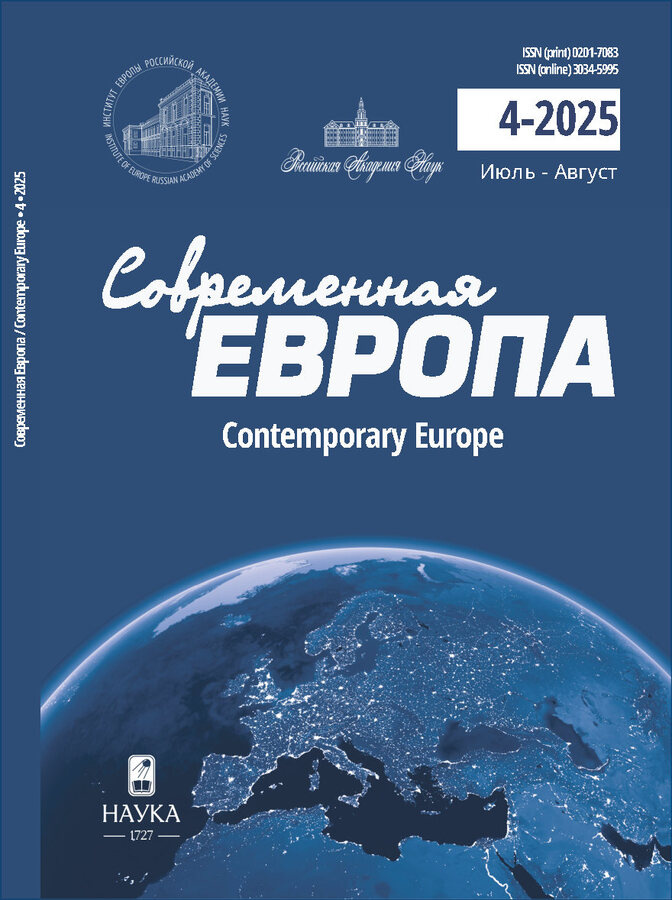Between Socialism and Yugoslavia: Polemical Review of the Biography of Stipe Šuvar
- 作者: Maleshevich A.V1
-
隶属关系:
- Institute for International Studies (IIS) MGIMO-University
- 期: 编号 4 (132) (2025)
- 页面: 218-227
- 栏目: REFLECTING ON WHAT WE HAVE READ
- URL: https://rjeid.com/0201-7083/article/view/691017
- DOI: https://doi.org/10.31857/S0201708325040187
- ID: 691017
如何引用文章
详细
The article presents a critical review of a political biography of Stipe Šuvar, a Yugoslav communist and a prominent figure on the left wing of post-socialist Croatia, published by Central Europe (Srednja Evropa) in Zagreb in 2024. The book offers the first comprehensive account of Šuvar’s political and personal trajectory, emphasizing his key role both in the development of Yugoslav socialism and in its dissolution. Given Šuvar’s well-established reputation as a defender of socialism and the Yugoslav federation, the author of the biography seeks to construct a coherent portrayal of his legacy, countering simplified and often critical depictions with a more sympathetic perspective. In contrast to the dominant post-socialist critiques framed through national perspectives, this review questions the default assumption of Šuvar’s ideological consistency, highlighting the fact that his views were also tested by the circumstances and his actions do not always appear to align with the goals of preserving the party and the unity of the state. Despite the detailed and original presentation of ideological and political contradictions within different segments of Yugoslav society, there is a noticeable lack of reflection on the transformation of Šuvar’s own views. The failure or unwillingness of pro-socialist Yugoslav actors to forge a stable inter-republican coalition ultimately had profound consequences for the federation.
作者简介
A. Maleshevich
Institute for International Studies (IIS) MGIMO-University
Email: anastasia.maleshevich@gmail.com
Candidate of Political Science; Research Fellow Moscow, Russia
参考
- Руднева И.В. (2014) Хорватское национальное движение: конец 1960-х – начало 1970-х гг. Институт славяноведения РАН, Москва; Нестор-История, Санкт-Петербург. 332 с.
- Badurina M. (2021) The Public Polemic of Stipe Šuvar and Šime Djodan of 1969 as an Example of a Struggle of Ideas in a (Trans-)National Context. Časopis za suvremenu povijest. No. 53(3). P. 823–850.
- Djilas M. (2022) Raspad i rat: Dnevnik, 1989–1995. Vukotić media, Belgrade, Serbia. 650 p.
- Dragojević R. (2024) Šuvar. Politička biogragija. Srednja Evropa, Zagreb, Croatia. 440 p.
- Čolak A. (2017) Agonija Jugoslavije. Laguna, Beograd, Serbia. 568 p.
- Hashi I. (1992) The Desintegration of Yugoslavia: Regional Disparities and the Nationalities Question. Capital & Class. No. 47. P. 41–88.
- Jović D. (2017) Rat i mit – politika identiteta u suvremenoj Hrvatskoj. Fraktura, Zagreb, Croatia. 424 p.
- Pandžić J. (2024) I poslije Šuvara – Šuvar. Anali Hrvatskog politološkog društva. No. 21(1). P. 305–323.
- Repe B. (2021) Predsedništvo CK SKJ: Mesto sučeljavanja svih glavinih konflikata. Jugoslavija: poglavlje 1980–1991. Ed. by Helsinški odbor za ľjudska prava u Srbiji. Eurodream, Nova Pazova, Serbia. P. 123–163.
- Ribić V. (2009) Ustavne promene i državno jedinstvo u retorici “Antibirokratske revolucije” u Srbiji. Etnoantropološki problem. No. 4(1). P. 185–212.
补充文件









